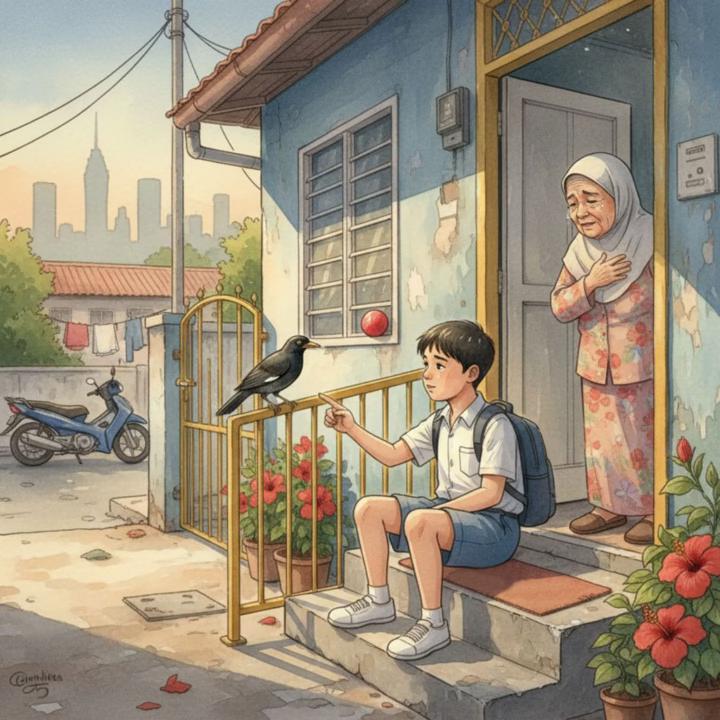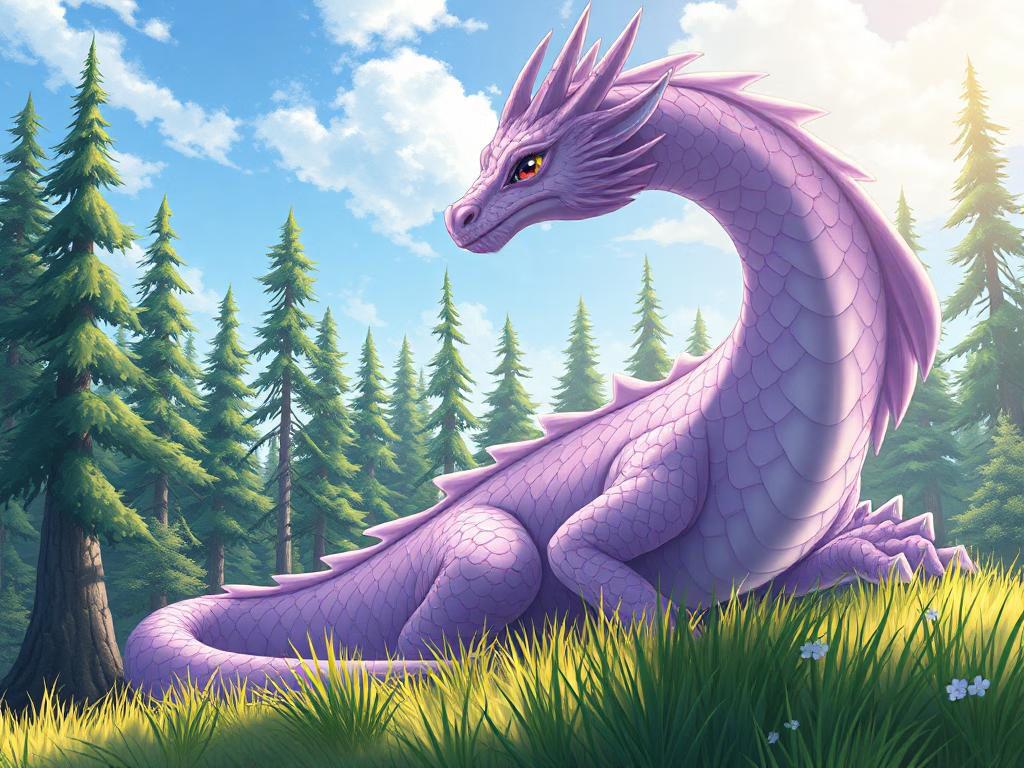
Bangsar wasn’t a quiet place. Even at night, the hum of motorbikes buzzed through the thin walls of Wei’s fifth-floor apartment, and the smell of fried noodles and damp laundry clung to the air. His world was small—school, the corner mamak stall where he bought teh tarik, and the balcony where he sometimes sat, watching pigeons fight over breadcrumbs.
Wei was ten. He had a backpack with one broken strap, a notebook full of doodles of birds, and a mother who worked double shifts at the hospital. She smiled when she could, but her eyes were always tired. “Just us two,” she’d say, ruffling his hair. But sometimes, “just us two” felt like silence.
Then, one rainy Saturday, Wei saw the bird.
It was in a cracked cage at the back of Mr. Lim’s pet shop, tucked between a tank of listless goldfish and a cage of chattering finches. A mynah bird—dark-eyed, one wing drooping, feathers ruffled like a crumpled letter. A sign taped to the cage read: Injured. Cheap.
Wei didn’t think. He counted the coins in his pocket—forty-seven ringgit, saved from birthdays and helping neighbors carry groceries—and handed them over.
“Be careful,” Mr. Lim said. “Mynahs remember things. Sometimes things you don’t want them to.”
Wei didn’t know what he meant. Not yet.
At home, he made a nest from an old shoebox and lined it with a soft sock. He gave the bird water in a bottle cap and mashed banana on a spoon. For three days, the bird didn’t move much. Wei named him Kecil—small one.
On the fourth morning, Kecil lifted his head. Then, in a voice that cracked like a pebble dropped on tile, he said:
“Mama, I’m here!”
Wei froze.
It wasn’t Wei who had said that. It wasn’t his mother, either.
It was a child’s voice—high, urgent, scared.
Wei leaned closer. “What did you say?”
Kecil tilted his head. “Mama! Look! I found the red ball!”
Wei’s heart thumped.
Over the next week, Kecil began to speak more. Not words he was taught, but remembered. Snippets, like songs stuck in his head:
- “Don’t leave me at the market, okay?”
- “I want to go home.”
- “It’s dark now.”
- “Please, I’m scared of the dogs.”
Wei started writing them down in his notebook, next to his bird sketches. He played soft music, gave Kecil millet seeds, and slowly, the bird began to trust him. He even let Wei stroke his feathers, and sometimes, he’d hop onto Wei’s shoulder and ride around the apartment like a tiny pirate captain.
But the words kept coming.
And they didn’t sound like they belonged to a pet shop bird.
One evening, Wei showed the notebook to his mother.
She read the phrases slowly, her brow furrowing. “These… these sound like a child,” she said. “Lost, maybe.”
“Could Kecil have belonged to a kid?” Wei asked.
“Maybe,” she said. “Mynahs can live a long time. And they do remember. They mimic voices they hear—sometimes for years.”
That night, Wei couldn’t sleep. He sat on the balcony with Kecil perched beside him. The city lights blinked below like distant stars.
“Who were you with?” he whispered. “Where did you come from?”
Kecil fluffed his feathers. Then, softly, he said:
“Aunty Siti. The blue house. With the yellow gate.”
Wei sat up straight.
The next day, he took the notebook to the Bangsar community center. He showed it to Aunty Lina, who ran the lost-and-found board.
She gasped. “The blue house with the yellow gate—that’s on Jalan Medlar! A little girl went missing last year. Nina. She was seven. Her family moved away after… after they couldn’t find her.”
Wei’s breath caught. “And the bird—could it have been hers?”
Aunty Lina nodded slowly. “Her grandmother had a mynah. It disappeared the same week Nina did. They thought it flew away.”
Wei knew what he had to do.
With Aunty Lina’s help, he found the old address. The blue house was still there, the yellow gate faded but bright. An elderly woman answered the door—her eyes red-rimmed, her hands trembling.
“This bird,” Wei said gently, holding out Kecil in his small carrier. “He says things. Things like ‘Mama, I’m here’ and ‘the blue house with the yellow gate.’ He says ‘I want to go home.’”
The woman—Nina’s grandmother—went very still.
Then she opened the door wider.
Inside, photos of a smiling girl covered the walls. And on a windowsill sat an empty birdcage, with a tiny red ball resting inside.
Kecil fluttered in his carrier. He looked at the woman. Then, clear as a bell, he said:
“Aunty Siti… I’m home.”
Tears spilled down the woman’s cheeks. She reached out a shaking hand. Kecil hopped onto her finger.
“He remembers her,” she whispered. “All this time… he remembered.”
Wei didn’t take Kecil back.
But every Saturday, he visited the blue house. He sat in the garden, and Kecil would fly to his shoulder, chattering nonsense and old phrases, like a living memory.
Sometimes, Wei would say, “Tell me about the red ball,” and Kecil would reply, “I found it! Look, Mama!”
And for a moment, it was as if Nina were there too—laughing, alive in the echo of a bird’s voice.
Wei still lived in the crowded apartment. His mother still worked late. But he wasn’t lonely anymore.
Because he had learned something important:
Even the smallest voices can carry the biggest stories.
And sometimes, the ones who seem lost… are just waiting to be heard.
The End.









